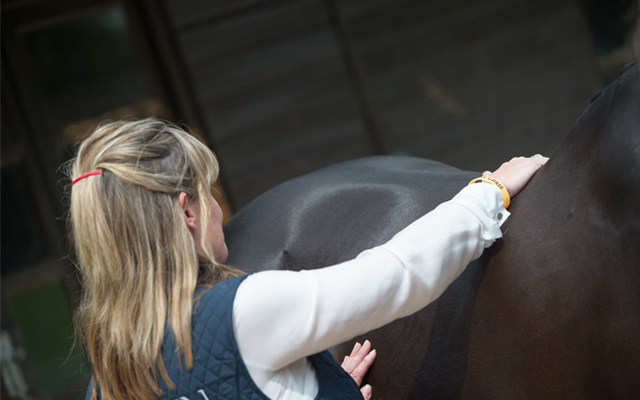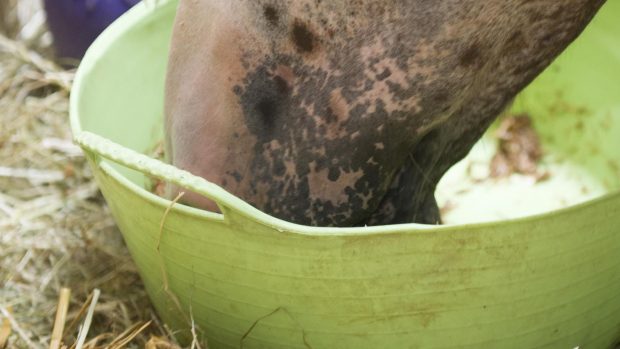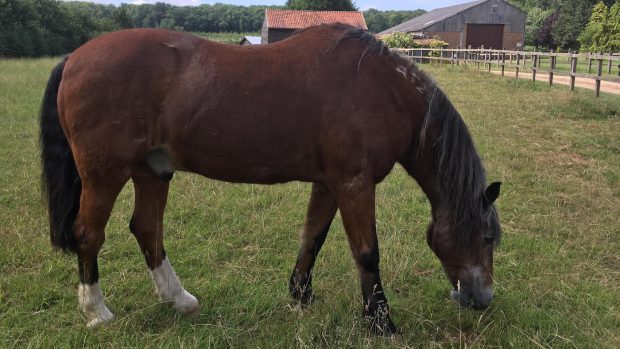We talk you through the dos and don'ts of feeding the performance horse for optimum condition with the help of Saracen Horse Feeds nutritionist Lizzie Drury
Feeding correctly can be a tricky business on its own. But if you factor in a competition horse who has to cope with the vigours of life on the road while still being required to perform to a high level, it can become even trickier.
To help you out we have compiled a list of factors to remember to help ascertain a suitable feeding regime for your performance horse.
1. Preparation is key
Start by condition scoring your horse every three to four weeks. This is an easy and accurate way to work out what sort of feed your horse might need with regards to energy balance. This enables you to make any dietary adjustments before a problem has actually occurred.
Digestible energy (DE) is key. DE is the number of calories absorbed into the body of your horse as it passes through the digestive tract.
You will need to increase DE via your horse’s feed to meet the demands for warmth, activity and general body condition maintenance.
2. Forage
Never underestimate the power of forage! Feeding hard food stuffs only will not do the trick when it comes to maintaining the condition of your horse. You need to know exactly how much forage your horse is eating on a daily basis to prevent hunger or wastage and be sure to encourage trickle feeding behaviour.
If your horse is prone to dropping condition easily, warning signs to look out for include loose droppings and irritable behaviour. Possible solutions for such a problem include “super fibre feeds” which contain yeast and pre/probiotics.
3. Conditioning feeds
Only start using conditioning feeds once you have got the forage intake correct for your horse. You need to carefully consider the raw materials within the feed that are likely to affect performance and behaviour.
If you have a “hot” horse it is preferable to feed a diet based on digestible fibre. For example a conditioning product should include sugar beet, alfalfa, soya hulls, a high level of oil and a low starch formulation.
Whereas if you have a “cool” horse you would want to ensure there is more cereal and a higher starch level within the formulation of the feed.
Saracen Horse Feeds’ nutritionist Lizzie Drury says: “Feeds will not turn horses something personality-wise they are not.”
4. Oil and fat supplements
You would need to feed a great deal of oil on its own to improve performance and condition. The amount of oil required to do this would in turn make the feed unpalatable.
A high oil diet runs the risk of increasing free radicals in the body which damage healthy cells and can cause problems such as muscle soreness.
Rice bran is a good source of oil and fat and 2lbs of good quality rice bran packs the same nutritional punch as feeding a whopping 750ml of oil on its own.
5. Protein
It is all about feeding quality not quantity when it comes to protein. Horses need protein for optimum functionality of their muscles, cell renewal and tissue repair and renewal.
Like this? You might also enjoy reading these:
H&H Feed Week: How to feed an underweight competition horse
The 10 golden rules of feeding horses
H&H Feed Week: the right diet to help prevent horses tying up
6. Trace elements, vitamins and antioxidants
These are all important for maintaining the health of your horse, his metabolism and recovery rate.
Feed balancers are great when it comes to containing these ingredients which makes them a suitable feed if you have a good doer as you don’t need to feed large quantities.
However you must feed balancers strategically as horses are unable to store excess vitamins and minerals.





